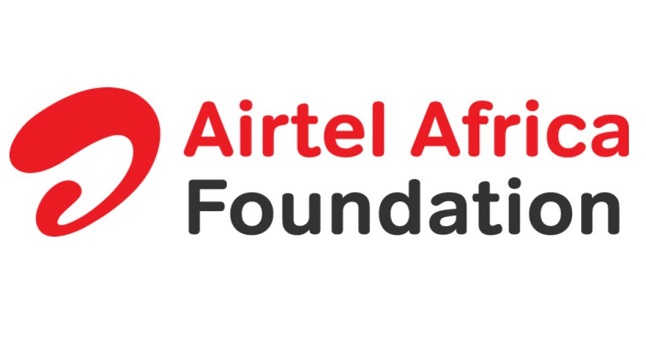Telecom
NCC to Review Rules for Robust Consumer Quality Experience

Nigeria Communications Commission (NCC) said it is currently reviewing the rule base to ensure a robust set of rules for the industry, primarily to achieve fair competition and consumer quality experience.
Mr. Ephraim Nwokonneya, head, Compliance Monitoring at the Commission, speaking at a capacity building workshop for ICT journalists in Lagos said that, ‘Nigerian telecommunication revolution’ in the last 12 years has brought with it, increase in investments in the industry especially Foreign Direct Investments (FDIs), significant growth in the number of operating companies, massive growth in subscriber population, intense competition resulting in innovative tariff plans and promotions.
He added that the revolution also has attached challenges like quality of service which has tested the regulatory competence of the Commission amongst others.
Hence, the Commission is currently reviewing its rule base to ensure a robust set of rules for the industry.
“Consistent with the above and the powers conferred on NCC by Section 70 of the NCA 2003, the Commission developed the Nigerian Communications (Enforcement Processes, Etc) Regulations 2005; Commence enforcement actions/investigation following results of prior compliance monitoring exercise or verified consumer complaints; Provide evidence of alleged violations to the responsible service provider; Provide opportunity for the service provider to respond; Propose relevant sanctions to be enforced on erring service provider in accordance with NCC Enforcement Processes Regulations; Obtain management’s approval and communicate sanctions to the service provider and Provide opportunity for appeal”.
Nwokonneya, reiterated that NCC has followed international best practices in enforcement procedures.
Comparing countries like Brazil, Singapore, United Kingdom and Nigeria revealed the similarities on enforcement procedures and timelines involved. For instance, timeline for offender’s defence/response shows Nigeria is ahead of Brazil and Singapore that give 15 days’ respectively, while Nigeria and UK give 14 days and 10 days respectively.
Also, final decision is reached on such cases after 30 day from conclusion of investigation in Brazil, 60 days in the UK and Singapore and 30 days in Nigeria. All the countries involved usually publish their final decisions.
Aside that, Nwokonneya said, “Every regulator has a variety of sanctioning tools to enforce compliance to its rules and regulations. However such sanctioning rules must ensure that the severity of sanctions matches the severity of the offence/violation. Some regulators have a specific schedule of fines e.g Nigeria. Some regulators levy fines based on a percentage of the offending licencee’s revenue e.g Peru, Poland, Turkey”.
He listed typical enforcement sanctions applied within the industry to include, “Administrative fines; The specific administrative fines are contained in the Second Schedule of the NCC Enforcement Processes Regulations. Schedule 3 of the NCC Qos Regulations 2012 also contain fines for contravention of each KPI.
“Cases of the N1.17B and N.647B fines against operators in 2012 and 2014 respectively for poor quality of service come to mind here. Confiscation of equipments; Denial of regulatory services; Revocation of licence”.
Although, some schools of thought have argued whether monetary sanctions by way of fines is the most effective way of enforcing compliance with rules and regulations in the industry, adding that the fines may not be severe enough to deter wrong doing and monetary sanctions deny operators the needed funds for network expansions, the Head of Compliance Monitoring at the Commission, said that Monitoring and Compliance can only be effective within the orbits of the available rules and regulations.
He maintained that the Commission would always draw strength from the provisions of Section 70 of the NCA, 2003 to develop a robust set of rules and regulations to guide operations of every facet of the market necessary to ensure ethical practices and to achieve consumer protection.
Presently, NCC boasts of over 20 Regulations, Guidelines and Directions.
These include, Numbering, Type approval of telecoms equipments, Interconnection, Competition practices, Consumer Code of Practices, Universal Service, Quality of Service and Enforcement Processes.
Others are Registration of Telephone Subscribers, Frequency Pricing, Number Portability, Annual Operating Levy, Lawful Interception of Communications and Technical Specification for the Installation of Masts and Towers etc.
Telecom
MoMo PSB Brings Relief to UNILAG Students with Ultra-Cheap Bus Fares

MoMo Payment Service Bank (MoMo PSB), a fintech subsidiary of MTN Nigeria, has announced a partnership with Ogata Electric Vehicles to provide subsidised bus rides of ₦10 per fare to students of the University of Lagos (UNILAG).

MoMo PSB
The initiative, unveiled on Thursday in Lagos, is aimed at easing transportation costs for young Nigerians, particularly students, as part of MoMo PSB’s broader commitment to financial inclusion and digital accessibility.
MoMo PSB, which provides millions of Nigerians with secure financial services including transfers, savings, card services, bill payments and wallet solutions, said the transport subsidy reflects its mission to improve everyday life by reducing the cost of essential services.
The company explained that the partnership with Ogata Electric Vehicles would not only make commuting more affordable for students but also promote sustainable mobility through the use of electric buses.
Officials of MoMo PSB noted that the initiative is designed to bring “good cheer” to the UNILAG community, ensuring students can access safe, reliable and cost-effective transport while focusing on their education.
Telecom
MTN Nigeria Launches Unlimited 5G Broadband Plans to Boost Digital Inclusion

MTN Nigeria has launched its Unlimited Broadband Data plans powered by 5G technology, a move the telecoms giant says will tackle long-standing challenges of capped data limits, high costs and unstable connectivity faced by internet users across the country.

MTN Nigeria
Egerton Idehen, Chief Broadband Officer of MTN Nigeria, said the new product was designed to support high-demand users including streamers, gamers, households and businesses requiring uninterrupted connectivity.
“We’re building a broadband experience for everyday life. For content creators, remote workers, gamers, students and households. Our focus is on speed, reliability, low latency, and affordability.
“Broadband is designed to deliver seamless connectivity that empowers Nigerians to thrive in the digital economy,” Idehen said.
The plans, available in speed-based variants of 50Mbps and 100Mbps, promise lightning-fast speeds and ultra-low latency to address issues of lag and buffering. MTN said the packages would also provide affordable and flexible options to cater to diverse economic segments.
New customers who purchase a 5G router will enjoy a welcome bonus of unlimited data for the first 30 days, allowing them to experience the service before committing to long-term use.
The company explained that the initiative was part of its broader commitment to digital inclusion, enabling Nigerians to access stable connections for virtual meetings, large file transfers, online learning, high-definition streaming and professional gaming.
Customers can subscribe to the Unlimited Broadband Plans by dialling 4611#, using the MyMTN app, MTN eShop, MTN website, or visiting authorised retail outlets nationwide.
Telecom
Airtel Africa Foundation Opens Undergraduate Scholarship Portal in Nigeria

The Airtel Africa Foundation has opened applications for its Undergraduate Tech Scholarship in Nigeria, inviting first-year university students with strong academic potential to apply for financial support aimed at accelerating their studies in technology and related fields.

The scheme provides full tuition, accommodation support, and essential study materials for eligible 100-level students. It forms part of the Foundation’s F.E.E.D. agenda, which promotes Financial Empowerment, Education, Environmental Protection, and Digital Inclusion, with a focus on creating pathways for talented young people who face financial barriers.
Airtel Nigeria CEO, Dinesh Balsingh, encouraged students to take advantage of the opportunity. He noted that, “Education is one of the most powerful tools for national development,” adding that “as an organisation, Airtel is determined to build a platform for aspiring young Nigerians to learn, innovate and lead in the country’s expanding technology landscape.”
Applications are open to students pursuing courses such as Information Technology, Computer Science, Software Engineering, Data Science, Cyber Security, Artificial Intelligence, and other ICT-related disciplines at participating universities: University of Lagos, University of Nigeria Nsukka, Ahmadu Bello University, University of Benin, Obafemi Awolowo University, University of Ilorin, and Tai Solarin University of Education.
Dr Segun Ogunsanya, Chairman of the Airtel Africa Foundation, said the scholarship demonstrates the organisation’s commitment to nurturing Africa’s next generation of digital leaders. “Young Africans are brimming with talent and ambition. What many need is a fair chance to pursue their education without financial pressure. This scholarship reflects our belief that investing in their growth will strengthen communities, empower families, and expand the continent’s digital future,” he said.
Applicants must be enrolled in 100-level, have scored at least 230 in JAMB, and hold a minimum of five credits in WAEC, including English and Mathematics, in a single sitting. Required documents include Joint Admissions and Matriculation Board (JAMB) results, university admission letter, West African Examination Council (WAEC) certificate, student identity card, and academic transcript or university results.
The Foundation encourages qualified students across the listed institutions to apply and position themselves for a stronger start in the technology sector. Applications can be submitted at candidate.scholastica.ng/schemes/airtelfellowship2025.

 E-Financial3 days ago
E-Financial3 days agoCBN Rejigs Financial Inclusion Strategy to Boost Economic Growth

 E-Financial3 days ago
E-Financial3 days agoSEC Urges IST to Freeze all CBEX Bank Accounts in Nigeria

 News3 days ago
News3 days agoFG to Use Digital Economy Initiatives to Curb Corruption Among Youth

 Telecom2 days ago
Telecom2 days agoAirtel Africa Foundation Opens Undergraduate Scholarship Portal in Nigeria

 E-Business3 days ago
E-Business3 days agoFinancial Sector Faced AI, Blockchain and Organised Crime Threats in 2025 – Report

 E-Financial2 days ago
E-Financial2 days agoEcobank Nigeria to Fully Repay $300m Eurobond Ahead of Schedule

 Telecom3 days ago
Telecom3 days agoCOUCH 2025 Grand Finale Highlights Student Breakthroughs, Secures Government Pledge for University Research Commercialization

 Broadcasting3 days ago
Broadcasting3 days agoEnd of an Era as Multichoice Delists from JSE After Canal+ Takeover


























